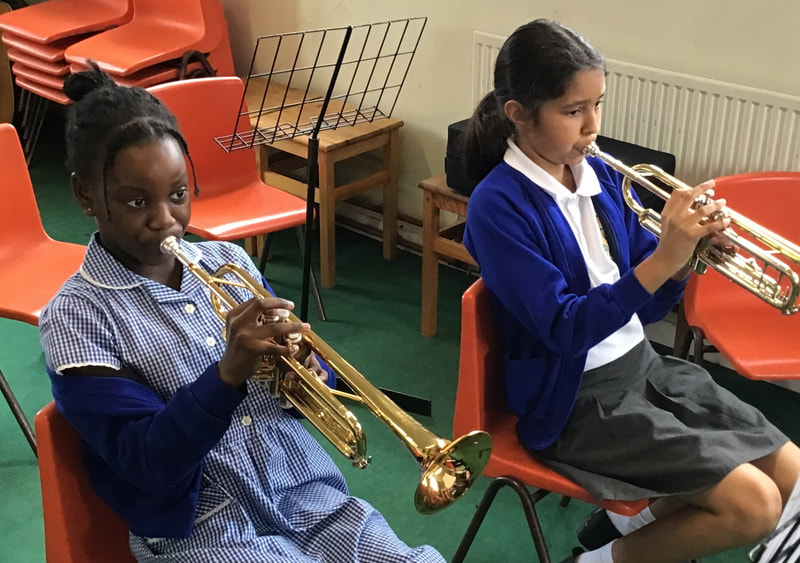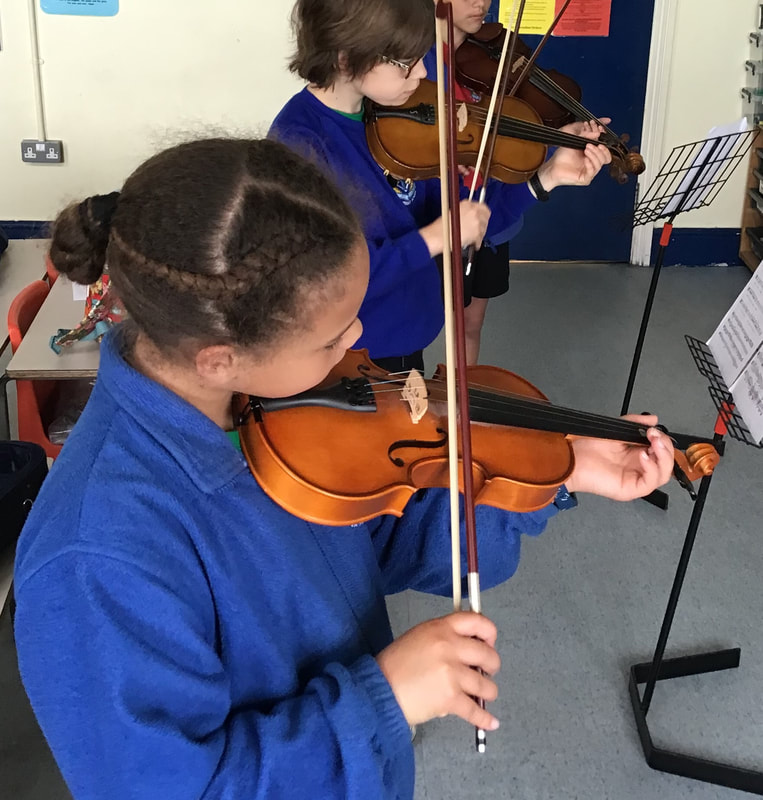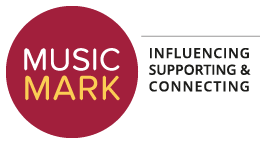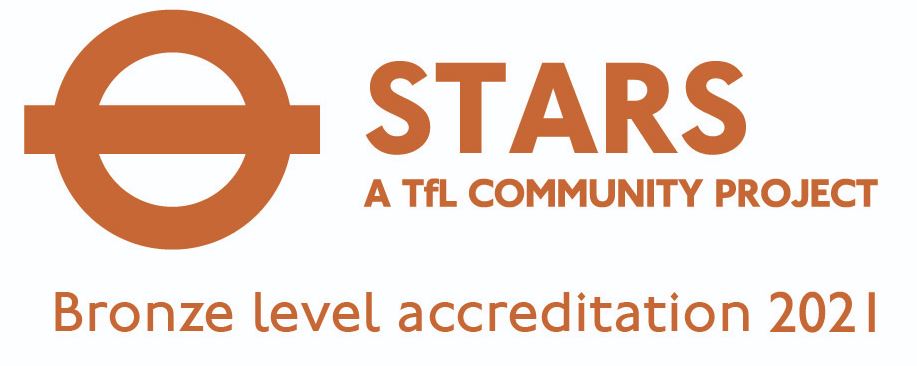Music
Our music department is proud to have:
- 10 music teachers (and counting)
- Half a dozen instruments that all children learn as part of the curriculum
- Another dozen instruments that children can learn in small groups
Music Overview
Children learn singing, solfege, claves, glockenspiel, violin, trumpet, African drumming and dancing, ukulele, composition and steel pans in their class music lessons. Children also have the option of learning violin, viola, cello, guitar, drumkit, flute, clarinet, saxophone, trumpet, trombone, French Horn, baritone horn, tuba and singing as part of a small group.
The following give an overview of the school approach towards music.
The following give an overview of the school approach towards music.
The following gives an overview of what children are learning in music and when they are taught this.
The school is proud of how many children learn musical instruments on a small group basis and has one of the highest percentages of children learning instruments in Brent. please contact Mr Tang to find out more information about this. The document below gives guidance on prices but always best to speak to Mr Tang about your child and opportunities that might suit them best.
| extra-curricular_music_information__5_.docx | |
| File Size: | 16 kb |
| File Type: | docx |
Frequently Asked Questions
When should children start learning music?
Music education can start before children are born, as they can listen to music from within the womb. At school, children are given free whole class music lessons from when they start at school. For paid, individual lessons, children as young as 3 years old can thrive in music lessons, provided that they have an appropriately trained teacher, and a supportive home environment. At school, we currently only offer group lessons to children from year 2 upwards. We suggest that younger children learn outside of school if time and finances allow.
Brass and woodwind lessons are not recommended for children before they lose their milk teeth (roughly at 8 years of age).
What about other curriculum subjects? Will my child be negatively effected if they are taken out of other lessons in order to take music lessons?
Our current policy dictates that children can only start 1 instrument during school hours. Therefore, they will miss only 30 minutes of another subject per week. Where possible, we try to rotate lessons around on a half-termly basis, so they don't always miss the same subject. Furthermore, if class teachers notice that a child is falling behind in a particular subject, we endeavour to ensure that the child does not miss those lessons.
Also, in many ways music can be highly beneficial to the cognitive development of children. The fine motor skills, discipline, team work, auditory skills and focus that are developed within music lessons can be transferred to other subjects. Much research has been done in this area.
https://www.frontiersin.org/articles/10.3389/feduc.2018.00074/full
Hyde (2009) showed that the "children in the music group had structural changes in their frontal, temporal, and parieto-occipital brain areas. Moreover, they also showed that these changes correlated significantly with improvements in auditory and motor tasks."
Morenzo (2011) found that "music intervention improved the verbal abilities of the children and that this was paralleled with the facilitation of the neural indices of executive functions."
Putkinen (2013), suggests that "music activities may help children focus their attention on a given task and inhibit distractors."
Kirschner and Tomasello (2010) found that "Music activities have been also shown to affect children's behavior. Even short sessions of joint singing and playing musical instruments seem to make children behave in a prosocial manner and increase their social skills."
Palubinski (2019) found that "While reading assessment scores increased for the entire population, there was a greater increase among ELL students that were enrolled in a music education course."
For further reading:
https://www.frontiersin.org/articles/10.3389/feduc.2018.00074/full
https://core.ac.uk/download/pdf/240228993.pdf
When should children start learning music?
Music education can start before children are born, as they can listen to music from within the womb. At school, children are given free whole class music lessons from when they start at school. For paid, individual lessons, children as young as 3 years old can thrive in music lessons, provided that they have an appropriately trained teacher, and a supportive home environment. At school, we currently only offer group lessons to children from year 2 upwards. We suggest that younger children learn outside of school if time and finances allow.
Brass and woodwind lessons are not recommended for children before they lose their milk teeth (roughly at 8 years of age).
What about other curriculum subjects? Will my child be negatively effected if they are taken out of other lessons in order to take music lessons?
Our current policy dictates that children can only start 1 instrument during school hours. Therefore, they will miss only 30 minutes of another subject per week. Where possible, we try to rotate lessons around on a half-termly basis, so they don't always miss the same subject. Furthermore, if class teachers notice that a child is falling behind in a particular subject, we endeavour to ensure that the child does not miss those lessons.
Also, in many ways music can be highly beneficial to the cognitive development of children. The fine motor skills, discipline, team work, auditory skills and focus that are developed within music lessons can be transferred to other subjects. Much research has been done in this area.
https://www.frontiersin.org/articles/10.3389/feduc.2018.00074/full
Hyde (2009) showed that the "children in the music group had structural changes in their frontal, temporal, and parieto-occipital brain areas. Moreover, they also showed that these changes correlated significantly with improvements in auditory and motor tasks."
Morenzo (2011) found that "music intervention improved the verbal abilities of the children and that this was paralleled with the facilitation of the neural indices of executive functions."
Putkinen (2013), suggests that "music activities may help children focus their attention on a given task and inhibit distractors."
Kirschner and Tomasello (2010) found that "Music activities have been also shown to affect children's behavior. Even short sessions of joint singing and playing musical instruments seem to make children behave in a prosocial manner and increase their social skills."
Palubinski (2019) found that "While reading assessment scores increased for the entire population, there was a greater increase among ELL students that were enrolled in a music education course."
For further reading:
https://www.frontiersin.org/articles/10.3389/feduc.2018.00074/full
https://core.ac.uk/download/pdf/240228993.pdf








